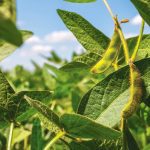The Canadian oilseed began to pull back on July 8 as it became caught up in a selloff in the global oilseed market. The November contract finished at C$658.20 per tonne on July 5, gaining more than C$31 on the week. However, by the close on July 10, that contract dropped to C$617.90.

ICE Canada Weekly: Canola likely to fall back

Alberta crops doing quite well
Crops throughout Alberta stood at 75 per cent good to excellent as of July 2, according to the latest crop report from the provincial agriculture department. That was eight points above the five-year average despite cooler than normal temperatures and delayed crop development due to excessive rain for most of the province so far this year.

Saskatchewan’s crops remain in good shape, but are still behind
Although crop conditions in Saskatchewan were good, the province’s latest crop report said development continued to fall behind normal for this time of year. Saskatchewan Agriculture pointed to the cooler temperatures and wet conditions as why development has been slower this year.

Diverging weather between Prairies, Midwest
Weather conditions across the Canadian Prairies and the United States Midwest will likely take somewhat different paths during the first half of July, according to Drew Lerner, president of World Weather Inc. in Overland Park, Kan.

CBOT Weekly: Still at the behest of the weather
United States corn and soybean crops continued to remain at whatever whims the weather brings, according to John Weyer of Walsh Commercial Hedging Services in Chicago.

Brazil pushing towards wheat self-sufficiency
The USDA attaché in the country’s capital of Brasilia said the expansion of wheat will include cultivating “tropical wheat” in the savanna-like region in central Brazil known as the Cerrado biome. These varieties of tropical wheat are reported to be better resistant to dry weather.

Increased soybean output to come for Brazil
Ahead of the July supply and demand report from the United States Department of Agriculture, its attaché in Brasilia projected larger soybean production in 2024/25. However, the attaché pegged their soybean estimates below the USDA’s official numbers.

Prairie Wheat Weekly: Most Canadian cash prices step back with U.S. declines
Cash wheat prices across the Canadian Prairies were mostly to the downside for the week ended June 27, as the United States wheat complex was steady to lower. That resulted in losses for Canada Prairie Red Spring Wheat, and Canadian Western Amber Durum, while Canadian Western Red Spring Wheat was mixed.

Feed Grains Weekly: ‘Going to be a lot of grain’ says broker
Feed grain prices took a sharp drop across most of the Canadian Prairies during the week of June 24, as a broker pointed to the potential for good crops this year as the reason why.

ICE Canada Weekly: Canola bouncing around in a large range
Although canola futures on the International Exchange have lost a fair bit of value over the last several weeks, there is a case to be made that the Canadian oilseed is rangebound.



